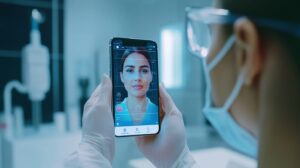
The Most In-Demand Healthcare Jobs in 2025
An interview with Jennifer Kolb, Vice President of Partnerships and Workforce Development at MedCerts
Q: The healthcare industry is facing a massive talent shortage. What kinds of jobs are most in demand right now, and where do you see the biggest opportunities for early-career professionals?
The most in-demand healthcare positions are in both clinical and non-clinical roles, especially as the industry grapples with an aging population and expanding healthcare needs.
There’s an ongoing demand for medical assistants, phlebotomists and patient care technicians, all of which are essential front-line roles that support the healthcare system and are often great starting points for those entering the field.
As healthcare settings focus on efficiency, positions like certified nursing assistants (CNA) and clinical medical assistants are in demand and experiencing significant growth.
The growth of telehealth and electronic health records (EHR) has increased demand for healthcare IT professionals, such as EHR specialists, medical coders and cybersecurity professionals. These roles are ideal for early-career professionals with technical or administrative backgrounds.
Non-clinical allied health professions, like pharmacy technicians and physical therapy assistants, are also in high demand as healthcare expands to outpatient and home care settings.
In all these areas, I see an opportunity for early-career professionals to leverage training and certifications, like those offered through MedCerts, to enter the workforce more quickly and build meaningful, long-term careers in healthcare.
The key is to focus on developing specialized, in-demand skills that align with the ongoing transformations in healthcare delivery.
Q: Many people assume that healthcare careers require years of education. What alternative pathways exist for someone looking to enter the field quickly and start building a stable career?
That’s a great question, and one that’s incredibly relevant in today’s evolving healthcare landscape. While it's true that many traditional healthcare careers require years of education, there are alternative pathways that allow individuals to enter the field quickly, gain valuable experience and build a stable and rewarding career.
At MedCerts, we focus on helping individuals access those alternative pathways through certification programs, short-term training and hands-on experience. These opportunities can be a great fit for those who want to start working right away and begin building their career in healthcare without the long educational timelines.
Some of the most promising options include Medical Assistant (6 months), Patient Care Technician (6 months), Pharmacy Technician (25 weeks) and Medical Billing and Coding (3 months), leading to immediate job opportunities in various healthcare settings.
For those with an interest in technology, certifications in EHR (Electronic Health Record) management, medical coding or healthcare cybersecurity can open doors to entry-level positions in this fast-growing field. These roles can be done remotely and provide high earning potential. Programs typically last between 4 to 6 months.
Another pathway into healthcare is through on-the-job training or apprenticeship programs. This path allows individuals to earn while they learn, reducing the financial barriers often associated with education or training.
Many healthcare employers, especially in allied health, are increasingly open to providing hands-on training in areas such as patient care, medical office administration and more. These programs can sometimes take longer to secure but offer the benefit of earning a salary while you train.
The beauty of these alternative pathways is that they not only get individuals into healthcare careers quickly but also equip them with specialized skills that are in high demand. Many of these roles have strong job security and offer opportunities for upward mobility with additional experience or certifications. Plus, they often offer flexible working conditions, competitive salaries and opportunities for career growth without the need for years of schooling.
Q: Training programs today are using innovative tools like AI, AR, and 3D simulations. How do these technologies change the way people prepare for healthcare jobs, and what impact do they have on career readiness?
Integrating advanced technologies like Artificial Intelligence (AI), Augmented Reality (AR) and 3D simulations into healthcare training is a game-changer.
AI is transforming how training programs are delivered by enabling personalized learning experiences. Training platforms can assess learners' strengths and weaknesses, offering tailored content, quizzes and practice scenarios specific to their learning needs.
This personalized approach means that learners are better prepared for the specific challenges they'll face on the job because their training is more aligned with their personal skill set and learning pace.
Augmented Reality (AR) and Virtual Reality (VR) offer immersive, interactive experiences that simulate real-world healthcare environments.
Through these technologies, learners can practice performing medical procedures, interacting with virtual patients and navigating complex healthcare scenarios without risk.
3D simulations are particularly useful for teaching complex healthcare tasks, such as medical imaging interpretation or surgical techniques.
These simulations allow learners to practice skills that would be difficult or impossible to replicate in traditional classroom settings. For example, a medical assistant might use a 3D simulation to practice drawing blood or administering injections, building confidence and proficiency before performing the task in a clinical setting.
AI and simulation technologies also enable real-time performance tracking, providing immediate feedback to learners as they engage with training materials. This instant feedback helps learners understand where they made mistakes, what they need to improve and how they can adjust their approach for better results.
Many of these technologies also allow learners to train from remote locations, making healthcare education more accessible than ever.
The overall impact is profound. Learners are better prepared to navigate the complexities of real-world healthcare environments. They gain theoretical knowledge and practical, hands-on experience that’s critical for success in healthcare careers.
Q: Financial and educational barriers often keep people from pursuing healthcare careers. What steps can organizations, schools, or employers take to make these opportunities more accessible?
For a more diverse and equitable workforce, addressing both financial and educational barriers is essential. Organizations, schools and employers can help by expanding financial aid options, such as scholarships and tuition reimbursement. These options make education more accessible.
Offering flexible, affordable training programs, including online and hybrid models, can also help individuals balance work and family responsibilities. Partnering with employers to provide apprenticeships and internships offers hands-on experience while students earn, making them job-ready from day one.
Promoting non-traditional pathways, like certifications in medical billing and coding or allied health roles, can provide job security without the need for expensive degrees.
Career counseling and mentorship can guide individuals through the process, while advocacy for public policies that support workforce development can provide further resources.
Together, these actions can help individuals overcome barriers to healthcare careers and build a skilled, inclusive workforce.
Q: You’ve worked with thousands of individuals and healthcare organizations. What strategies have proven most effective for building strong pipelines of talent, and how can employers better attract and retain the next generation of healthcare workers?
Building strong talent pipelines in healthcare is a multifaceted approach that requires a combination of strategic partnerships, innovative training programs and a focus on employee engagement and retention. At MedCerts, we’ve had the privilege of working with both individuals and healthcare organizations to help bridge the skills gap. I’ve seen firsthand what strategies work best for attracting and retaining top healthcare talent.
One of the most effective strategies is for employers to collaborate with educational institutions to ensure that training programs align with industry needs. By offering tailored training programs and internships, employers can help prepare graduates with the skills they need and provide them with hands-on experience, making the transition to employment smoother.
Investing in education and career advancement for existing employees is another key strategy. Offering tuition reimbursement or in-house training programs helps employees grow their skills and prepares them for higher-level roles within the organization. Clear career progression pathways, such as moving from a CNA to a nurse, also provide growth opportunities and improve employee retention.
Leveraging technology plays a vital role in recruitment. AI-driven tools and virtual career fairs can help employers efficiently identify top candidates, engage with them remotely and showcase their organization’s culture. Also, a strong employer brand through social media, highlighting employee success stories and promoting work-life balance initiatives, can attract the next generation of healthcare workers.
Retaining top talent requires a focus on employee engagement and well-being. Competitive pay and benefits, including performance-based incentives, flexible schedules and wellness programs, are essential to keeping employees happy. Recognizing achievements and offering professional development opportunities can foster loyalty and job satisfaction.
Finally, promoting diversity, equity and inclusion (DEI) initiatives is important in attracting a wide range of candidates. By supporting underrepresented groups and building a culture of cultural competence, healthcare organizations can improve patient care and enrich their workplace environment.
Jennifer Kolb is Vice President of Partnerships and Workforce Development at MedCerts, a national online training provider focused on certifications in the high-demand areas of healthcare and IT. Established in 2009, MedCerts now partners with more than 70 academic institutions and 1,000 healthcare organizations nationwide to provide innovative eLearning solutions that help students evolve into new job opportunities and help employers find qualified candidates.










